Program Faculty
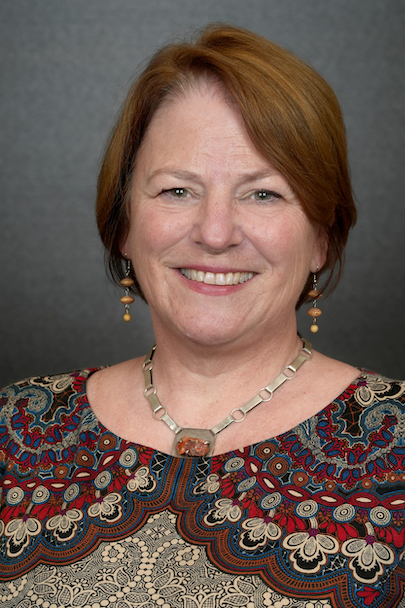
Robin Bennett, M.S., CGC
Program Co-Director
(she/her)
Robin Bennett, Professor of Medicine, brings over 35 years of experience in genetic counseling to the UW Genetic Counseling Graduate Program. Over the span of her career, she has cared for more than 25,000 patients in the Genetic Medicine Clinic at the UW Medical Center and helped train future genetic counselors and medical geneticists.
Globally recognized as a leader in genetics education, Robin has lectured and consulted in Australia, Saudi Arabia and China. At the GCGP, she is the primary instructor for Cancer Genetics and Genomics, Professional Issues in Genetic Counseling, and co-instructor for the three-quarter Genetic Counseling Theory and Practice series.
Robin has made significant contributions to the body of knowledge of genetic counseling and is most known for her work in pedigree nomenclature, consanguinity, presymptomatic testing for Huntington disease and other neurogenetic disorders, recurrent miscarriage, fragile X syndrome, Fabry disease, cancer genetics, and the National Society of Genetic Counselors (NSGC) Code of Ethics. She’s also helped develop NSGC’s original protocol for the creation of practice guidelines and is the author of “The Practical Guide to the Genetic Family History.” The National Human Genome Research Institute noted her team’s recent publication, “Practice resource-focused revision: Standardized pedigree nomenclature update centered on sex and gender inclusivity: A practice resource of the National Society of Genetics Counselors,” as an accomplishment in genomic medicine.
As a prominent leader in medical genetics and genetic counseling, Robin served as president of the NSGC, on the board of directors of the American Board of Genetic Counseling, and as a founding board member and past president of the Accreditation Council for Genetic Counseling. She was on the board of directors of the American Society of Human Genetics and currently serves on the Awards Committee and the DEIA (Diversity, Equity, Inclusion, Anti-Racism) Committee. Robin is the recipient of multiple honors, including the NSGC Natalie Weissberger Paul National Achievement Award and as a distinguished lecturer in the Janus Series. She received the Art of Listening Award from the Genetic Alliance, and the Pathfinder Alumni Award from the Mercer Island School District. At the UW she has been recognized with the Distinguished Staff Award, the Department of Medicine Distinguished Faculty Award, and as one of 75 Changemakers over 75 years. Robin earned a master's degree in Human Genetics at Sarah Lawrence College, and a bachelor’s degree in biology from Kenyon College, which later awarded her an honorary scientific doctorate.
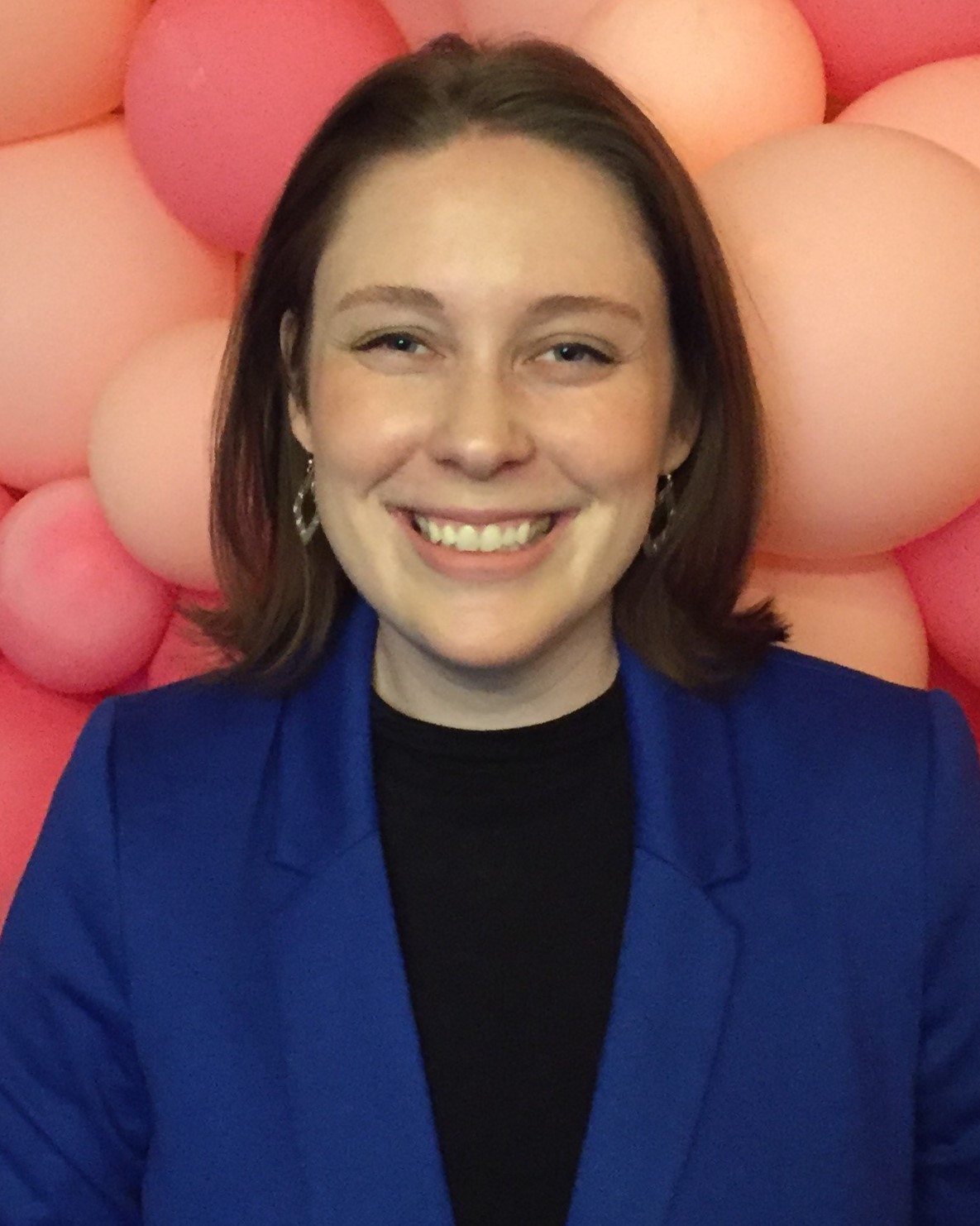 Katie Bergstrom, M.S., CGC (she/her)
Katie Bergstrom, M.S., CGC (she/her)
Katie Bergstrom graduated from the University of Utah Genetic Counseling Program in 2012 and is proud to serve patients and families in the Seattle Children’s Cancer and Blood Disorders Center. Katie has served in several National Society of Genetic Counselors leadership positions and is the recipient of the National Bleeding Disorders Foundation Genetic Counselor of the Year Award in 2020. Katie co-teaches Cancer Genetics and Genomics for the GCGP.
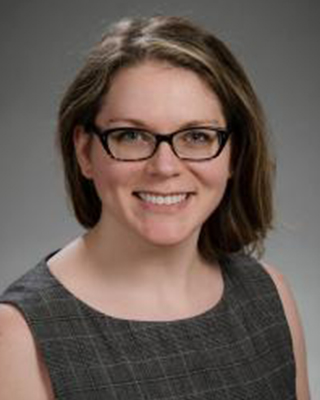
Elizabeth Blue, Ph.D.
(she/her)
Elizabeth "Liz" Blue, an associate professor in the Department of Medicine, is a statistical geneticist whose research focuses on identifying genetic variants influencing complex and Mendelian traits. While her lab focuses on genetic modifiers of Alzheimer’s disease, she is highly collaborative, actively participating in the Alzheimer's Disease Sequencing Project, the Cystic Fibrosis Genome Project, the UW Center for Mendelian Genomics and the Pacific Northwest Undiagnosed Diseases Network. She's also a member of the Institute for Public Health Genetics. Liz earned her doctorate in anthropology at the University of Utah. She teaches Biostatistics in Genetic Counseling for the GCGP where she shares her knowledge and enthusiasm for population genetics, statistical genetics, and bioinformatics.
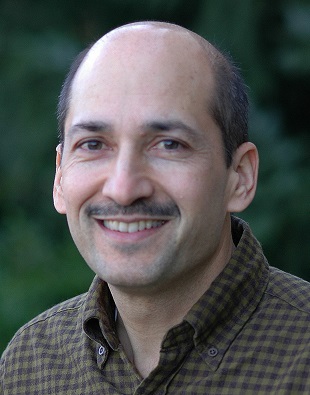
Raj Kapur, M.D., Ph.D.
(he/him)
Raj Kapur is a professor of laboratory medicine and pathology, and practices a combination of surgical and autopsy pathology at Seattle Children’s Hospital. He directs the autopsy program at Seattle Children’s, where his team performs expert examinations on fetuses and infants with birth defects, which are referred from around the Puget Sound region. His love of human embryology began during medical school and led to his doctoral studies of preimplantation mouse embryo development at the University of Southern California. His postdoctoral work included autopsy studies of malformed human fetuses in the Center for Human Embryology at the University of Washington, as well as basic science research related to neural crest cell migration in transgenic murine embryos. Raj earned a medical degree and a doctorate in anatomy and cell biology at the University of Southern California, Los Angeles. He teaches Clinical Embryology for the GCGP where he reviews classic human embryology with a heavy emphasis on practical issues that relate specifically to genetic counseling.
raj.kapur@seattlechildrens.org
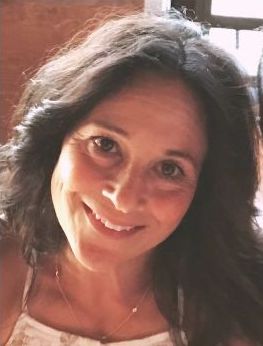
Jessica Mandell, M.S., CGC
(she/her)
Jessica Mandell is the genetic counselor and research coordinator for the laboratory of Dr. Mary-Claire King at the University of Washington, guiding over 6,000 high-risk breast, ovarian, and prostate cancer families through research and genetic testing since 1997. Jessica coordinates study enrollment and provides cancer genetic counseling for cancer survivors, gene mutation carriers, and families with suspected but unknown cancer genetic connections. She also provides genetic counseling for individuals enrolling in research for inherited deafness, schizophrenia, lupus, mesothelia, and pentosuria.
Jessica has consulted for Informed Medical Genetics, Inc., a phone-based clinical genetic counseling company providing genetics services to individuals without access to local care. She is a past editor of the National Society of Genetic Counselors’ publication, Perspectives, has presented at numerous scientific and community conferences on topics in genetics and genetic counseling, and was featured in the 2008 documentary, In the Family, following one woman navigating the medical and emotional journey of genetic testing for cancer predisposition. Jessica earned her master's degree in genetic counseling from Sarah Lawrence College.
Jessica has committed her career to promoting the understanding, access and application of genetic testing, genetic counseling, and research to diverse patient populations, medical providers, students, and consumers of all ages. She teaches Research Methods and Design for the GCGP.
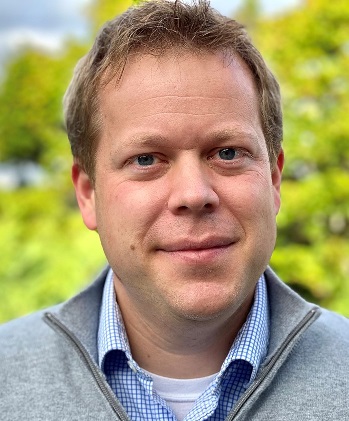
Danny Miller, M.D., Ph.D.
(he/him)
Danny Miller is an assistant professor in the Department of Pediatrics and the Department of Laboratory Medicine and Pathology. His research interests include using long-read sequencing to identify missing disease-causing variations and understanding the impact of genomic variants detected by long-read sequencing. He is also interested in using long-read sequencing as a single clinical test to both increase the rate of genetic diagnosis and decrease the amount of time required to make a genetic diagnosis. Danny earned his medical degree and a doctorate in physiology from the University of Kansas. He teaches Principles of Human and Medical Genetics for the GCGP.
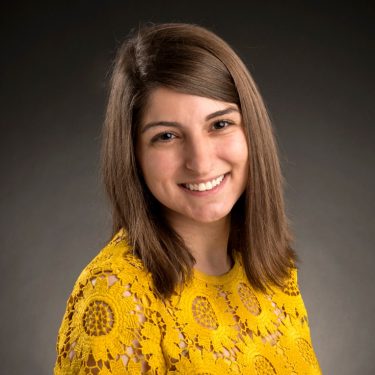
Roya Mostafavi, M.S., CGC
Assistant Program Director for Fieldwork Education (she/her)
Roya Mostafavi is a 2012 graduate of the University of Texas Health Science Center Genetic Counseling program. She joined the University of Washington in 2025 as the Assistant Program Director of Fieldwork Education for the GCGP. Roya's prior clinical experience spans pediatric genetics, utilization management, pediatric oncology, cancer survivorship and disorders of sexual differentiation. Her research interests include understanding patients' decision-making regarding genetic testing and outcomes of genetic testing. She teaches the Clinical Practicum series for the GCGP.
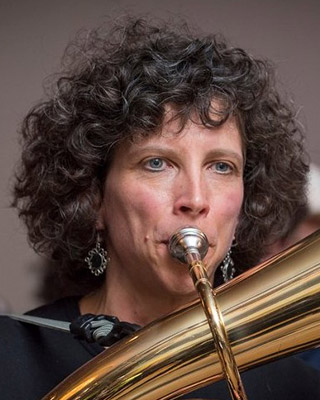
Whitney Neufeld-Kaiser, M.S., CGC
(she/her)
Whitney Neufeld-Kaiser is a laboratory genetic counselor supporting the Cytogenetics and Clinical Genomics Labs at the University of Washington Medical Center. She has 25 years of experience as a genetic counselor, primarily in reproductive and laboratory genetics. Whitney has served on the National Society of Genetic Counselors’ Board of Directors and twice on the American Board of Genetic Counseling Practice Analysis Committee. She was awarded the UW Clinical Pathology Staff of the Year award in 2021 in recognition for her outstanding teaching and training of medical residents. Along with her passion for genetics, Whitney finds joy in making music with her husband and friends, birding and gardening. Whitney has a master’s degree in genetics from the University of Washington and a master’s degree in genetic counseling from the University of California-Irvine. She teaches Applied Clinical and Laboratory Genetics for the GCGP.
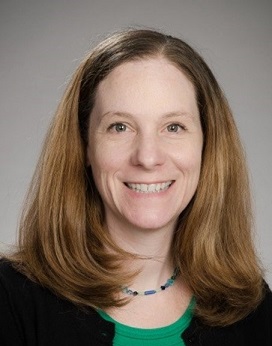
Lauren Puryear, M.S., CGC
(she/her)
Lauren Puryear is a clinical assistant professor in the UW Genetic Counseling Graduate Program and a clinical genetic counselor in the UW adult genetics clinic. Lauren graduated from Stanford University’s Human Genetics and Genetic Counseling program and previously worked as a teacher, trainer and mediator. She teaches Clinical Skills I and II; Advanced Concepts in Genetic Counseling; and Adult Genetics and Common Diseases for the GCGP.
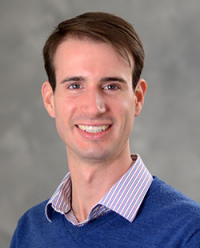
Brad Rolf, M.S., CGC
Program Co-Director
(he/him)
Brad Rolf has been a genetic counselor at the University of Washington since 2013. His research interests include polygenic risk, genetic counseling education and genetic counseling for patients who identify as LGBTQ. Before joining the faculty of the Genetic Counseling Graduate Program, he worked primarily as a research genetic counselor. In this role he coordinated the genetics study of the Therapeutic Pipeline Project, a research project aimed at determining the efficacy of whole-exome sequencing for inherited forms of Alzheimer’s disease and dementia. He also worked on one of the Clinical Sequencing Evidence-Generating Research consortium projects that focused on delivering genetic testing and genetic counseling services for inherited cancer risk to underserved populations. Brad earned a master’s degree in genetic counseling at the University of Texas Health Science Center. He teaches Genetic Counseling Theory and Practice I, II, and III; and Principles of Human and Medical Genetics for the GCGP.
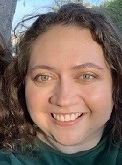
Lauren Slevin, M.S., CGC, Ph.D.
(she/her)
Lauren Slevin is a practicing prenatal genetic counselor at Swedish First Hill and Providence Everett Maternal Fetal Medicine. Her clinical interests are centered around reproductive genetics and the psychosocial and cultural aspects of reproductive decision-making. Lauren earned her doctorate in biology from the University of North Carolina at Chapel Hill, followed by a master’s degree in genetic counseling from California State University, Stanislaus. She teaches Reproductive Genetics for the GCGP.
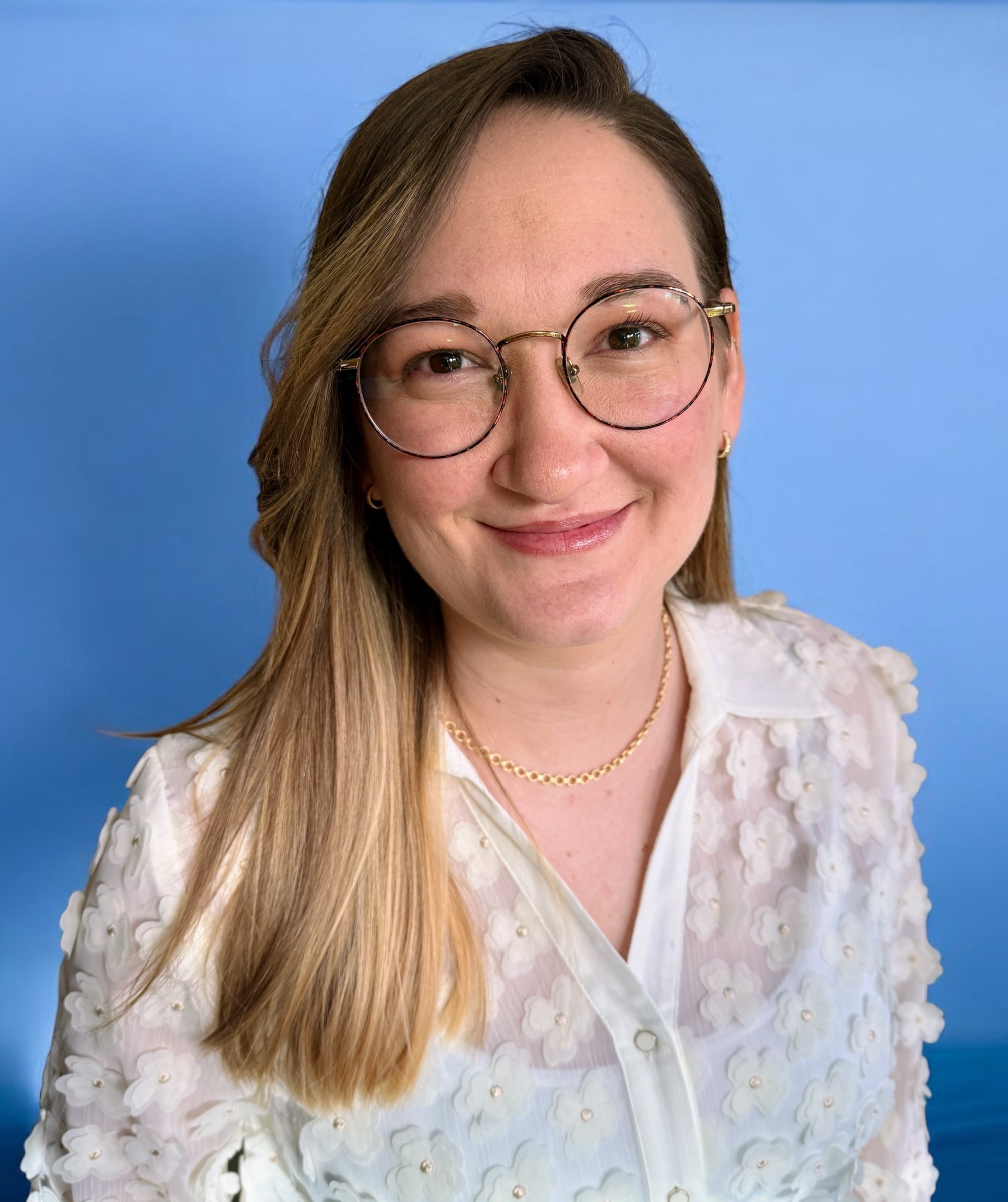
Jenny Thies, M.S., CGC
(she/her)
Jenny Thies is a genetic counselor in the Biochemical Genetics Lab at Mayo Clinic and an instructor for the Pediatric and Biochemical Genetics course in the University of Washington Genetic Counseling Graduate Program. She is passionate about education and clinical research in biochemical genetics, newborn screening, and ultra-rare diseases. Jenny earned her master’s degree in genetic counseling from the University of Oklahoma in 2014. Outside of work, she enjoys exploring various music genres, paddleboarding, and spending time with her family and cats.



